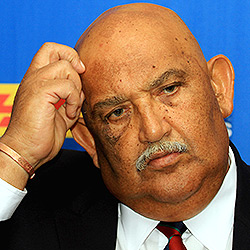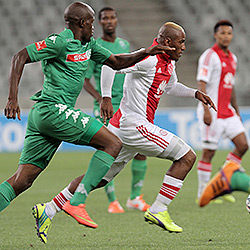City 'disappointed' with WP stance
The city of Cape Town has expressed "disappointment" with the decision of the Western Province Rugby Football Union not to relocate from Newlands to the purpose-built Greenpoint stadium.
However, Garreth Bloor – the city's Mayoral Committee Member for Tourism, Events and Economic Development – said they have alternative options to ensure the stadium is not a white elephant.
The decision by WPRU was taken following a Special General Meeting held on Wednesday, December 17, which was called to provide feedback and to discuss the investigation of the feasibility and desirability to relocate to the Greenpoint-based stadium.
The WPRU are the owners of Newlands Rugby Stadium, thus, the clubs are the stakeholders and owners of the Union.
And the amateur clubs had long been vocal opponents of a move away from the aging stadium in Newlands.
Western Province President Thelo Wakefield said they would have been just "squatters" if they opted to relocate to the Cape Town Stadium.
"I want to make things clear: I'm not willing to go and 'squat' at the Cape Town Stadium while I have a top class property at my disposal,"  Wakefield said.
Wakefield said.
"It's no use being told you're only a tenant or anchor tenant and then the definition of that is stipulated in three small lines of fine print. What is the definition of a 'partner in the ruling company'? It will basically relegate us to 'squatters'."
In his reaction Bloor said he wished the WPRU well in their future endeavours.
The statement by Bloor, in full: "While we were surprised and disappointed to learn that the Western Province Rugby Union will not be making the Cape Town Stadium their home ground, the City of Cape wishes the rugby union all the best for the future.
"The financial viability of the stadium has never been solely dependent upon WPRU becoming an anchor tenant.
"Several alternatives have existed for months as part of the commercialisation process. The alternatives have been noted as part of the business plan for the commercialisation of the stadium. One alternative includes the naming rights of the stadium, which has attracted unofficial offers that could total approximately US$3-million over a multi-year period.
"The City has just completed a period of public participation as part of the statutory processes needed to optimise development opportunities and the marketability of the stadium, enhance the non-event day income streams, and secure the long-term economic and environmental sustainability of the stadium.
"Two key initiatives aimed at addressing the financial viability of the stadium have been undertaken:
1. A review of the land use and environmental conditions attached to the stadium property which currently do not permit the activation of non-event day business activities.
2. Finding a resolution to the long-term management and business operating model of the stadium, including the attraction of longer-term tenants.
"Currently, without commercialisation, the City has managed to mitigate the costs of the stadium with various conferences, concerts and other activities at the stadium. This amounted to a total revenue of ZAR11-million for the 2013/14 financial year.
"While the most ideal option would be to secure a long-term anchor tenant or multiple longer-term tenants, we envision the stadium as a multi-functional and financially sustainable venue that enhances opportunities for the city's residents and local economy. The process of commercialisation has therefore not stopped and we continue to look at various business models that would make the stadium economically sustainable.
 "We are currently in a process of public participation looking at the rezoning of the erf on which the stadium is situated to see if we might allow for non-event related businesses to be operational in the stadium. Public input and an appeal process will be a requirement. During our initial public participation process, 65 percent of respondents supported the business plan that calls for a mixed-management model and commercial activity in the stadium precinct.
"We are currently in a process of public participation looking at the rezoning of the erf on which the stadium is situated to see if we might allow for non-event related businesses to be operational in the stadium. Public input and an appeal process will be a requirement. During our initial public participation process, 65 percent of respondents supported the business plan that calls for a mixed-management model and commercial activity in the stadium precinct.
"There are various interdependencies that should be in place before financial sustainability can be achieved. Our projections and modelling exercises do, however, indicate that a new set of environmental and zoning conditions must be in place before an array of non-event related commercial/business opportunities can be activated. In addition to this, securing multiple longer-term tenants is ideal in order to underpin the number of events and the number of anticipated spectators, which in turn drive hospitality, sponsorship, advertising and ticketing revenue streams.
"Should the aforementioned streams be activated in tandem, financial sustainability may materialise within a five-year period. This is dependent upon the conclusion of the processes outlined above, and the activation of all possible income streams identified in the business model that was released for comment last year.
"Our research of stadiums across the world indicates that this is a crucial element for any sustainability agenda.
"While the stadium will be used as Ajax Cape Town's home ground for the next three PSL seasons, the intent to secure long-term tenants is a key priority for the City and remains an ongoing process."















































